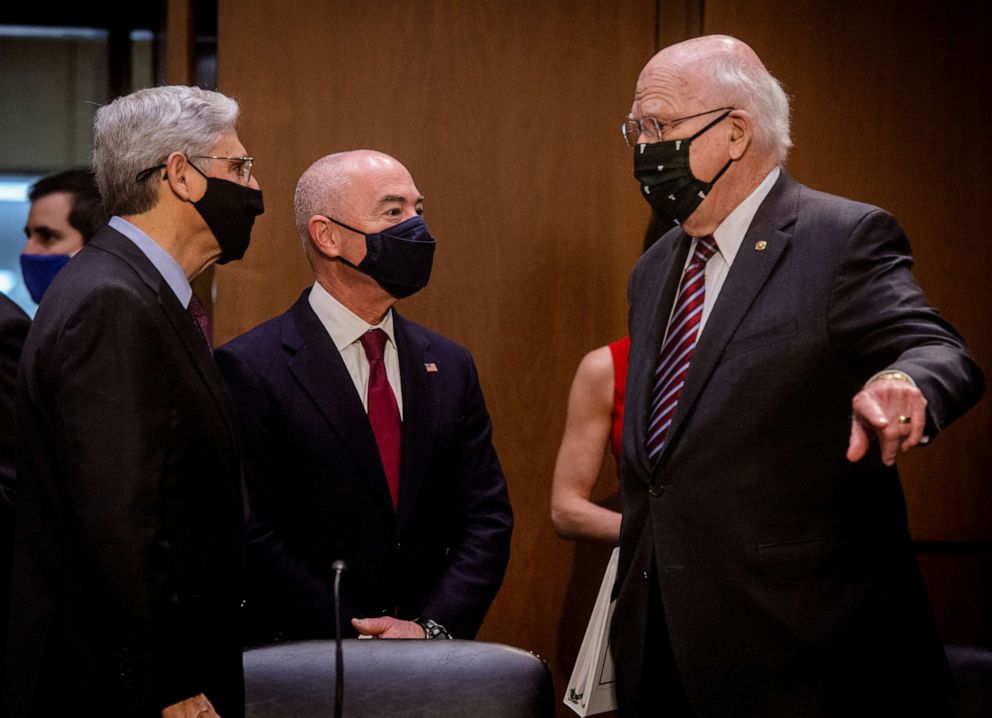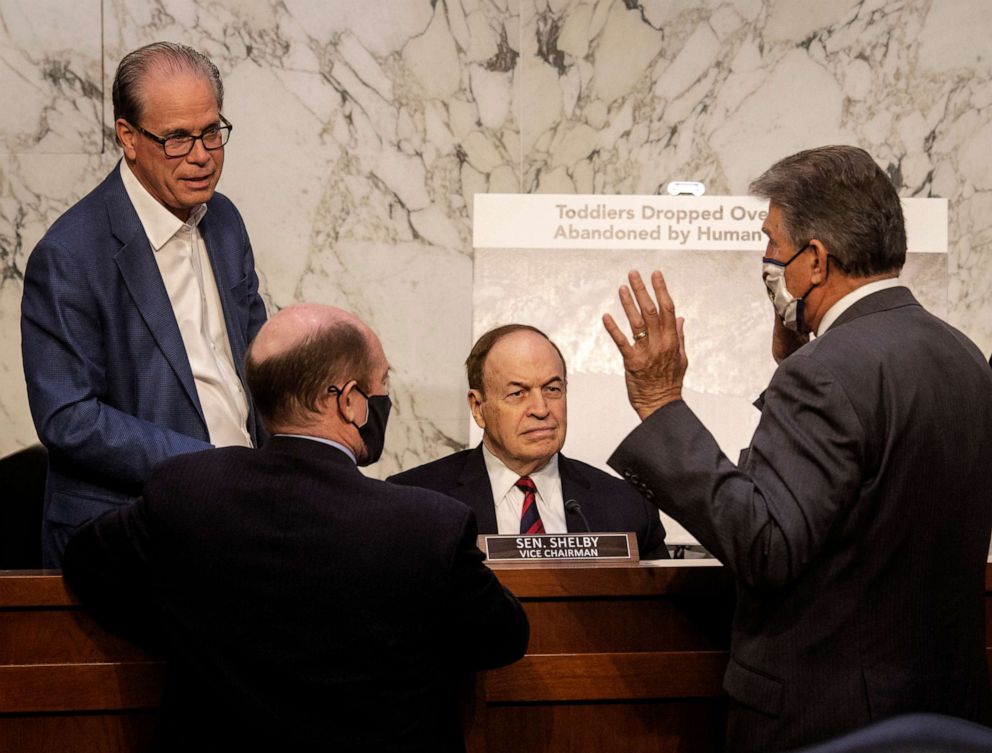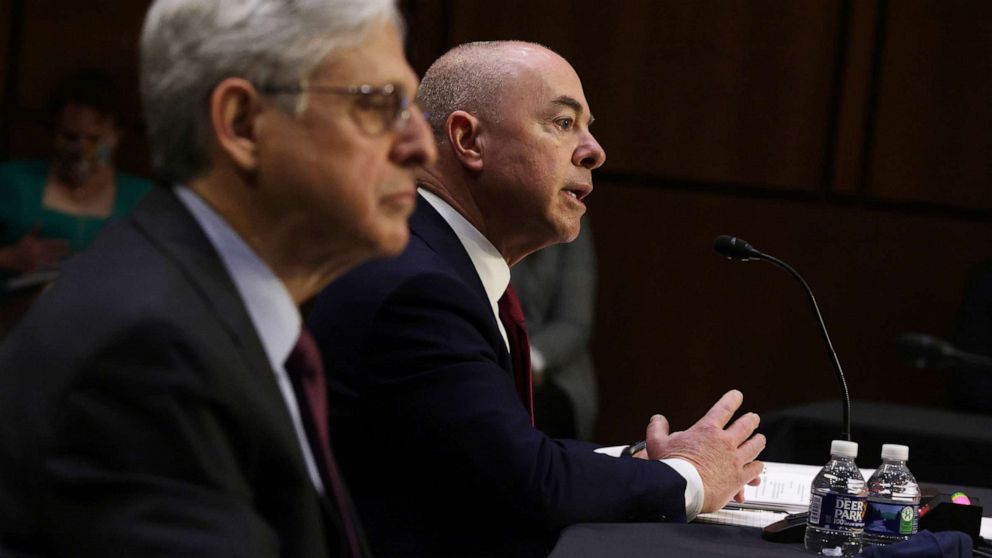AG Garland testifies Jan. 6 insurrection was 'most dangerous threat to our democracy'
Attorney General Merrick Garland told the Senate Appropriations Committee on Wednesday that he has not seen a more dangerous threat to democracy than the "invasion" of the Capitol on Jan. 6, which he called in written testimony a "heinous attack" and "intolerable assault."
"This was an attempt by some -- I want to be very careful to not ascribe it to all because every case is different, but there was an attempt to interfere with the fundamental passing -- element of our democracy, the peaceful transfer of power. And if there has to be a hierarchy of things that we prioritize, this would be the one we prioritize, because it is the most dangerous threat to our democracy," Garland said.
Garland and Department of Homeland Security Secretary Alejandro Myorkas used their testimony to highlight the new initiatives put forward by their respective departments as they push lawmakers to approve $100 million of additional funds in President Joe Biden's budget request dedicated to addressing rising domestic terrorism threats.
In March, the Office of the Director of National Intelligence, the Department of Justice and the Department of Homeland Security released a report that outlined a threat assessment of domestic violent extremists, finding that attacks by such persons could be "elevated" this year.
On Tuesday, Mayorkas established a domestic terrorism branch in the DHS Office of Intelligence & Analysis and established the Center for Prevention Programs and Partnerships, which is an effort to combat terrorism and targeted violence.
In addressing that threat, the attorney general said Wednesday that challenges, including the ability to communicate on encrypted chats, make it more difficult to identify domestic violent extremists and that law enforcement is contending with an increased "degree of lethality and lethal weaponry available."
Without mentioning former President Donald Trump by name, Mayorkas said that false narratives fuel extremism.
"The spread of false narratives are used to fuel extremist ideologies," he said. "And those false narratives can lead people who are predisposed to violence to commit acts of violence against our institutions. And tragically, we saw that on January 6."
Garland said he did not know how long it will take to conclude investigations into the Captiol riot, which sparked one of the largest DOJ investigations in its history. As of this week, Garland said more than 430 arrests have been made in connection with the insurrection amid investigations that span "almost the entire country." .
Responding to a question from Sen. Jack Reed, D-R.I., Mayorkas said Wednesday that DHS is "intensely" focused on Russia's effort to sow "discord and disunity" in the United States.
Garland said during later questioning that the government should be concerned "about interactions between domestic violent extremists particularly radically motivated and ethnically motivated ones where there are similar groups, particularly in Europe, with similar ideological events, sharing information."

Asked about how the Justice Department is addressing extremism in the ranks of law enforcement given the notable number of arrested Capitol rioters who were either current or former members of the law enforcement community, Garland said it represents one of the most difficult problems facing the department.
He said Deputy Attorney General Lisa Monaco has recently been leading a review of the department's procedures, meeting with heads of all of DOJ's law enforcement agencies "to determine how we can carefully vet our own employees, again, always being mindful of First Amendment and free associational rights."
Mayorkas also briefly addressed the Colonial Pipeline ransomware attack and said it is taking a whole of government approach to combat the issue.
"We are working at the direction of the president, in an all of government way, to address the cybersecurity threat that Colonial Pipeline suffered and that other businesses and institutions across our country are vulnerable to."
In written testimony, Garland referenced his experience overseeing the investigation into the bombing of the Alfred P. Murrah federal building (also known as the Oklahoma City bombing) and how the terrorism the country witnessed that day in 1995 has a direct line to some of the threats the homeland now faces.

"The horror of domestic violent extremism is still with us," Garland said in the written testimony, while noting the FBI's assessment that the top domestic terrorism threat facing the country comes from racially motivated violent extremists -- specifically white supremacists.
Garland, in his written testimony, also noted the DOJ's focus on the rise in hate crimes in recent years -- including attacks targeting the AAPI community since the start of the COVID-19 pandemic.
"Hate crimes have no place in our society, and the Department, led by our Civil Rights Division, is committed to prosecuting those who commit them," Garland plans to say.




